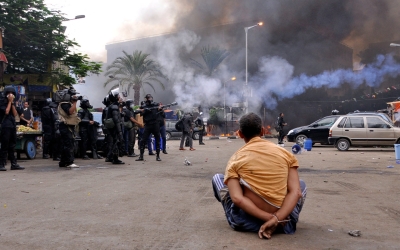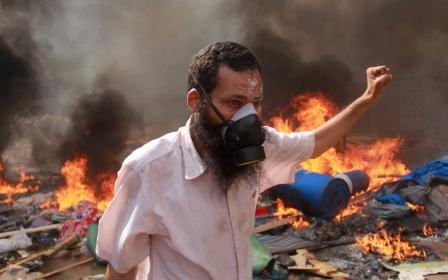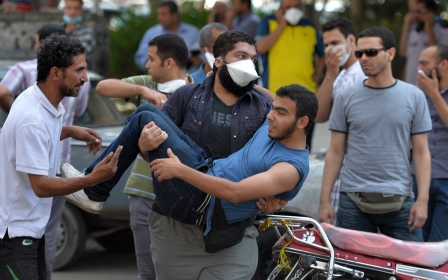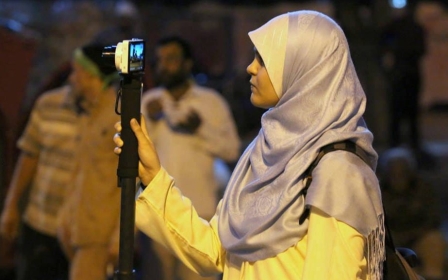Rabaa massacre: HRW calls for prosecuting suspects using universal jurisdiction
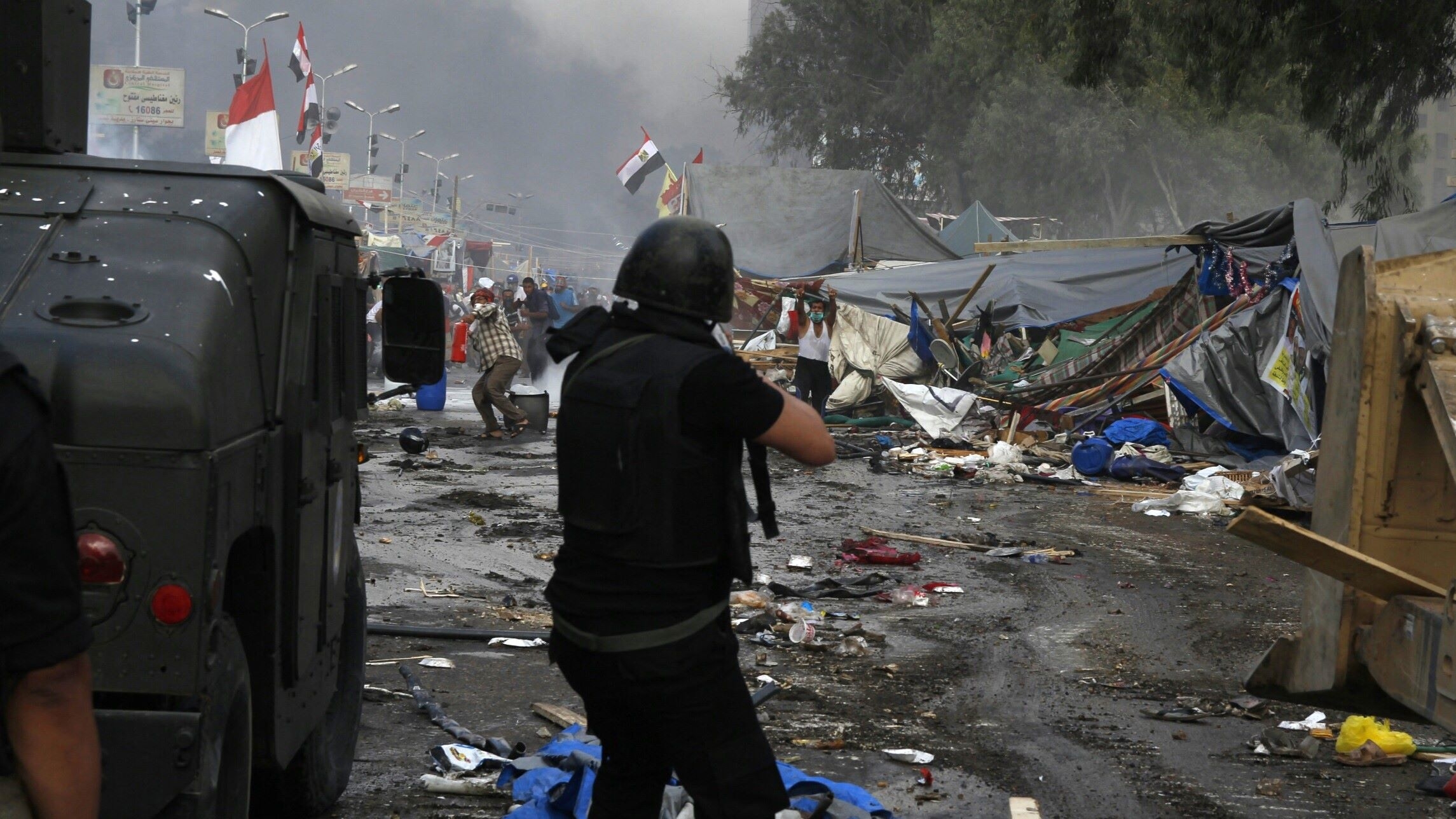
The international community must hold those responsible for the deaths of hundreds of protesters responsible, a decade after the worst mass killing in Egypt’s modern history, Human Rights Watch (HRW) said in a statement marking the 10th anniversary of the massacre.
At least 900 people died when Egyptian soldiers and police officers forcibly dispersed a protest camp in Cairo’s Rabaa al-Adawiya Square on 14 August 2013.
Tens of thousands had gathered there to demand the return of former President Mohamed Morsi, who had been deposed by his defence minister and current Egyptian leader Abdel Fattah el-Sisi in a coup a month and a half earlier.
HRW described the killings as “a likely crime against humanity” and considered it the start of a continuing campaign of repression against critics of Sisi’s rule.
Despite heavy visual documentation of the killings by Egyptian activists, journalists and rights groups, to date no one responsible for the deaths has been prosecuted by the Egyptian authorities.
New MEE newsletter: Jerusalem Dispatch
Sign up to get the latest insights and analysis on Israel-Palestine, alongside Turkey Unpacked and other MEE newsletters
“Addressing what happened in Rabaa does not only concern Rabaa victims and their families but is also crucial for the prospect of human rights and democracy in Egypt,” said Adam Coogle, the rights group’s deputy Middle East and North Africa director.
“The Rabaa massacre precipitated a devastating campaign of arrests, sham trials, torture and exile that has all but removed any space for critical dialogue and pushed many reformists out of the country,” he continued.
Hundreds of protesters who participated in the sit-in have been detained since the massacre including many who were convicted in mass trials that have been criticised for lacking transparency and fairness.
HRW has previously said that the killings were premeditated and the planning involved high-profile members of the Egyptian government in office at that time, including then defence minister Sisi, Prime Minister Hazem El Beblawi, and interim President Adly Mansoor.
Universal jurisdiction
The rights group wants countries to implement the principle of universal jurisdiction when it comes to prosecuting those with links to the killings, especially after the failure of all attempts to investigate the killings or prosecute the suspects in Egypt.
Under international law, domestic courts can prosecute individuals accused of serious crimes, such as genocide and crimes against humanity, regardless of where the crime was committed.
Countries including Germany have used universal jurisdiction to prosecute and jail Syrian nationals involved in atrocities committed in that country’s civil war.
Since the massacre, Egypt’s crackdown on dissent extended from supporters of Morsi’s Muslim Brotherhood to groups and individuals who fall across the ideological spectrum.
Morsi himself was kept in what the rights group called “abusive conditions” until his death in court in 2019.
Mansour, who headed the state until Sisi’s election in 2014, ordered a non-judicial investigation into the massacre but the committee made up of former government officials ended up blaming the protesters themselves in a report published in November 2014.
Immediately following the killings, countries including the US condemned the massacre and placed limited sanctions on Egypt aimed at limiting its ability to target protesters.
The EU also placed a limited embargo but HRW said many individual member states within the block continue to supply the Sisi government with arms.
Meanwhile, a joint statement by 26 rights groups on Monday said that the Rabaa massacre ushered in "the darkest episode of repression in the country’s history", with Egyptian human rights organisations documenting over the last 10 years the enforced disappearance of some 3,000 people for varying periods of time, death by mistreatment and medical negligence of at least 1,200 people in detention centres, the sexual assault of at least 655 people and their family members, and the extrajudicial killing of more than 750 people.
Middle East Eye delivers independent and unrivalled coverage and analysis of the Middle East, North Africa and beyond. To learn more about republishing this content and the associated fees, please fill out this form. More about MEE can be found here.


